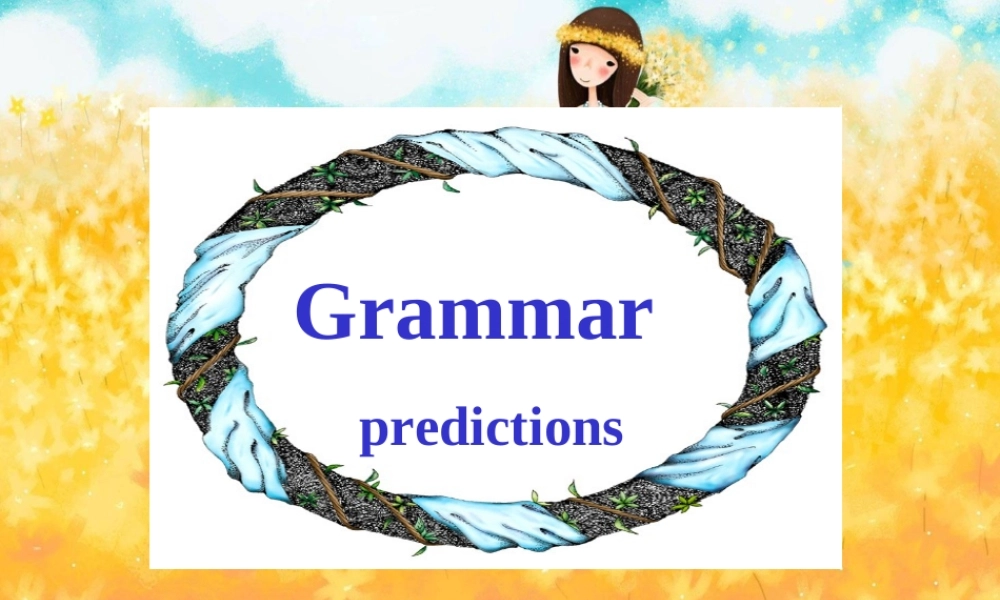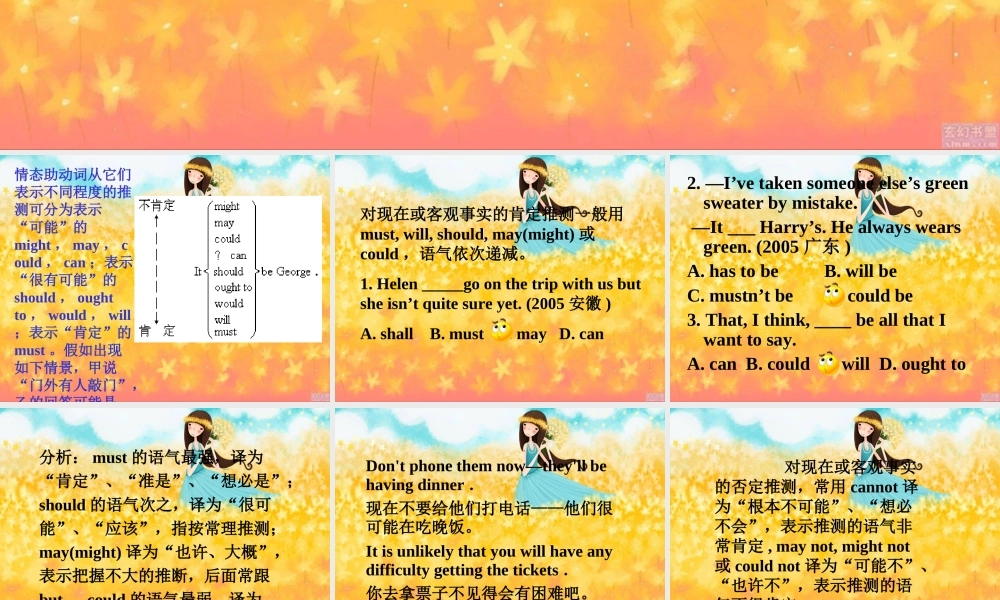Grammarpredictions情态助动词从它们表示不同程度的推测可分为表示 “可能”的might , may , could , can ;表示“很有可能”的should , ought to , would , will;表示“肯定”的must 。假如出现如下情景,甲说“门外有人敲门”,乙的回答可能是:对现在或客观事实的肯定推测一般用must, will, should, may(might) 或could ,语气依次递减。 1. Helen _____go on the trip with us but she isn’t quite sure yet. (2005 安徽 ) A. shall B. must C. may D. can 2. —I’ve taken someone else’s green sweater by mistake. —It ___ Harry’s. He always wears green. (2005 广东 ) A. has to be B. will be C. mustn’t be D. could be 3. That, I think, ____ be all that I want to say. A. can B. could C. will D. ought to 分析: must 的语气最强,译为“肯定”、“准是”、“想必是”;should 的语气次之,译为“很可能”、“应该”,指按常理推测;may(might) 译为“也许、大概”,表示把握不大的推断,后面常跟but 。 could 的语气最弱,译为“也许”、“可能”。 Don't phone them now—they'll be having dinner .现在不要给他们打电话——他们很可能在吃晚饭。It is unlikely that you will have any difficulty getting the tickets .你去拿票子不见得会有困难吧。 对现在或客观事实的否定推测,常用 cannot 译为“根本不可能”、“想必不会”,表示推测的语气非常肯定 , may not, might not或 could not 译为“可能不”、“也许不”,表示推测的语气不很肯定。如果“ be going to + 动词原形” 后有明确的时间状语,则表示该动作或状态发生的可能性较大;反之,则表示一种推测,表示未来可能发生的事情。例如:There is going to be a film in our school this evening. 今晚我们学校将有一场电影。(一种安排 , 一定会发生)Hurry up! We are going to be late. 快点!我们要迟到了 .( 仅表示一种推测 )We are going to have a class meeting this afternoon. 今天下午我们打算开班会。(一种安排 , 一定会发生 ) Look at the black clouds. It’s going to rain. 看那些乌云 , 快要下雨了。 ( 推测 ) I’m not feeling well, I’m going to be ill. 我感觉不是很好 , 可能要生病了。 ( 推测 ) will 更强调依据直觉、知识和经验作出推测。be going to 更强调依据当时可以观察到的证据、事实作出推测。Note to will, be going toAnswers for reference (p9)1 a) 2 b) 3 b) 7891 a) 2 a) (1) is going to (2) will (3)will (4) is going to (5)willAnswers for reference (p9)1. Look at the two bumper cars. I’m sure they will crash into each other.2. Obviously, the woman is going to have a baby.3. The boy is so absorbed that I’m afraid he will walk into the post.4. It’s clear that the house is going to fall into the river.10HomeworkRewrite the text “The Future of Cyberspace” in your own words


